In a notable advancement for environmental sustainability and public health, innovations in water purification technology are being highlighted at the African lion 2024 military exercise in Tunisia. Hosted by the U.S. Africa Command, this annual event brings together military and civilian organizations from across the continent, fostering collaboration on pressing regional issues. Among the key discussions this year is the transformative role of modern water purification systems, which are being hailed as ‘game changers’ in addressing the urgent water scarcity challenges faced by many African nations, including Tunisia.As communities grapple with the effects of climate change and population growth on their water resources, these cutting-edge solutions promise to enhance access to safe drinking water and improve overall health outcomes. This article delves into the implications of these advancements and their potential impact on Tunisia and the broader African landscape.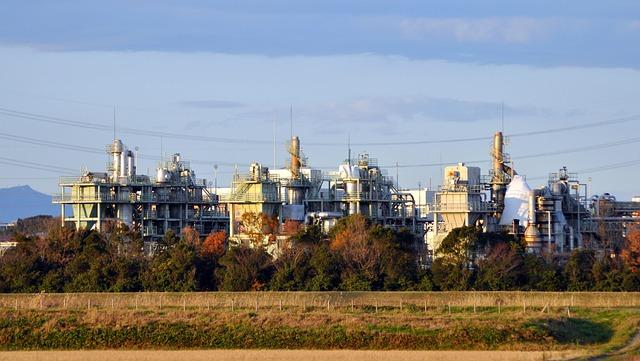
Impact of Water purification technologies on Public Health in Tunisia
Access to clean water is a foundational element of public health, and emerging water purification technologies in Tunisia are poised to significantly reduce waterborne diseases. These innovations not only improve the quality of drinking water but also enhance community awareness surrounding hygiene and water management practices. By implementing advanced filtration systems, such technologies can remove contaminants such as bacteria, viruses, and heavy metals that pose serious health risks. This proactive approach contributes to lowering the incidence of illnesses related to poor water quality, thereby influencing overall health outcomes and productivity in the population.
Moreover, the economic implications of improved water purification extend beyond health. healthy populations lead to reduced healthcare costs and an increase in workforce efficacy. Communities that benefit from such technologies experience improved school attendance rates, a decrease in healthcare expenditures, and enhanced quality of life. The following table illustrates the potential benefits of widespread adoption of water purification measures:
| Benefit | Impact |
|---|---|
| Reduced Disease Incidence | Lower rates of waterborne illnesses |
| Economic Growth | Increased productivity and reduced healthcare costs |
| Enhanced Public Awareness | Improved community knowledge about water safety |
| Improved Quality of Life | Better health leads to higher living standards |
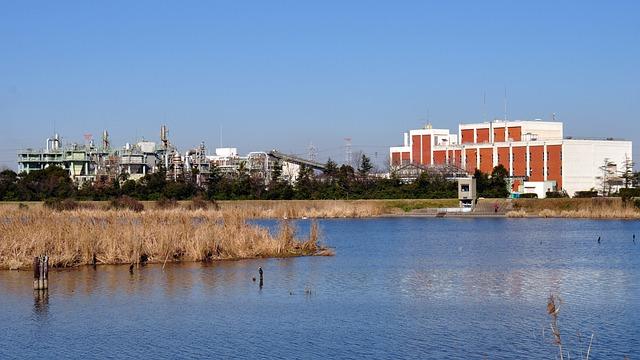
Advancements in Water Purification: A Spotlight on African Lion 2024
The recent developments in water purification technologies showcased at African Lion 2024 mark a pivotal moment for Tunisia and the broader African continent. As nations grapple with the impacts of climate change and water scarcity, innovative solutions are emerging that promise to transform access to clean water. Notable advancements highlighted during the event include:
- Solar-Powered Filtration Systems: Utilizing renewable energy, these systems provide sustainable solutions in remote areas.
- Advanced Membrane Technology: enhancing the efficiency of desalination processes, making seawater more accessible for drinking.
- Community Engagement Initiatives: Programs that educate local populations on water quality management and sustainable practices.
In addition to technological breakthroughs, partnerships between governments, NGOs, and private organizations are being fostered to ensure widespread implementation of these water purification methods. An interactive segment at the event demonstrated how these collaborations can yield impactful results,fostering a culture of shared duty and innovation. The emphasis on local community involvement has been particularly encouraging, with many initiatives focused on training locals to operate and maintain the new systems. The long-term vision aims to tackle not just immediate water quality issues, but also build resilience against future crises.
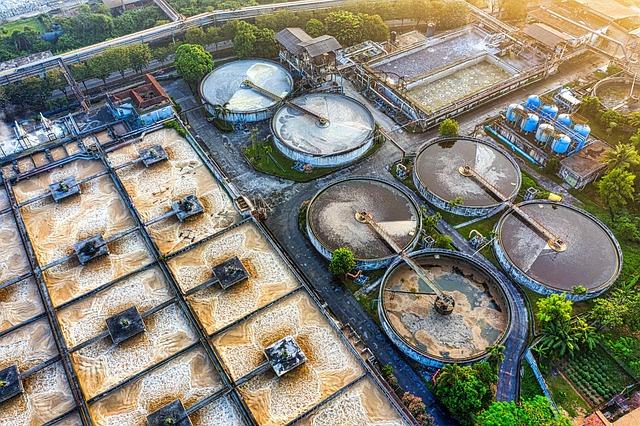
Economic Benefits of Water Purification Initiatives for Local Communities
The introduction of effective water purification initiatives in local communities offers a multitude of economic advantages that extend beyond mere access to clean drinking water. These programs can stimulate local economies by creating jobs in manufacturing, operations, and maintenance of purification systems. Entrepreneurs can emerge from these initiatives, leading to the establishment of various services and products related to water purification, from filtration systems to home delivery of bottled water. additionally,improved water quality enhances the productivity of local industries such as agriculture and tourism,reducing costs associated with health care due to waterborne illnesses.
Moreover, community engagement in water purification initiatives fosters a sense of ownership and responsibility, often resulting in sustainable development practices that benefit the economy. Incorporating local resources and traditional knowledge into these programs can lead to innovation and cost-effective solutions tailored to specific community needs. The ripple effect is significant: with improved public health, communities may see an uptick in labor productivity and reduced absenteeism, ultimately contributing to enhanced GDP figures.The following table summarizes key economic impacts:
| economic Impact | Description |
|---|---|
| Job Creation | Establishment of new roles in water purification and maintenance. |
| Cost Reduction | Lower healthcare costs due to decreased waterborne illnesses. |
| Increased Productivity | Higher efficiency in agriculture and industrial sectors. |
| Local Entrepreneurship | Opportunities for local businesses in water-related services. |
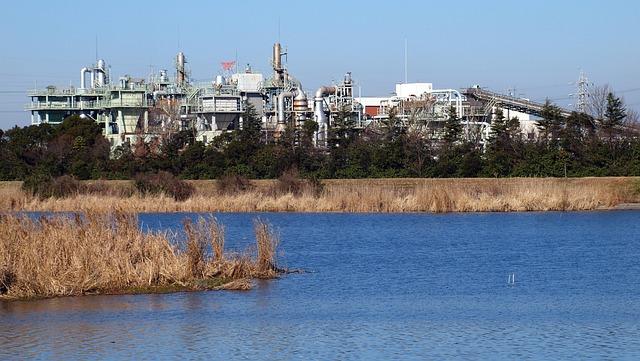
Collaborative Efforts: The Role of International Partnerships in Water Solutions
The recent collaboration showcased at the african Lion 2024 event in Tunisia underscores the significance of global partnerships in addressing water scarcity and quality challenges across Africa.Through multilateral efforts,countries are pooling resources,knowledge,and technology to implement cutting-edge water purification methods. The importance of shared expertise cannot be overstated; collective initiatives have enabled nations to adapt state-of-the-art solutions that are often tailored to local environmental needs.
Key contributors to these partnerships include governmental agencies, NGOs, and private sector innovators who are committed to sustainable water practices. Some of the essential components of these collaborative efforts are:
- Knowledge Exchange: Sharing research and best practices to enhance purification techniques.
- Funding Opportunities: Mobilizing financial resources for large-scale projects.
- Technology Transfer: Implementing advanced technologies such as solar-powered purification systems.
As an inevitable result of this cooperation, Tunisia has witnessed significant advancements in water treatment facilities, demonstrating how united approaches can lead to transformative impacts on community health, agricultural productivity, and environmental sustainability.

Future Recommendations for Sustainable Water management in Tunisia
To ensure the sustainability of water resources in Tunisia, a multi-faceted approach will be crucial. Key strategies may include:
- Investment in Innovative Technologies: Leveraging cutting-edge water purification and desalination technologies will be essential to enhance the quality and availability of water.
- Strengthening Policy Frameworks: Establishing stringent regulations that promote responsible water use and encourage conservation efforts among industries and individuals alike.
- Community engagement: Actively involving local communities in water management practices to foster ownership and stewardship of water resources.
furthermore, collaboration between governmental bodies, private sector stakeholders, and international organizations can propel Tunisia towards achieving its sustainable water management goals.Important actions to consider are:
| Action item | Description |
|---|---|
| Public Awareness Campaigns | Educating citizens on the importance of water conservation can lead to significant reductions in wastage. |
| monitoring Water Resources | Implementing regular assessments of water quality and availability to make informed decisions. |
| Promoting Agricultural Efficiency | Encouraging farmers to adopt drought-resistant crops and efficient irrigation techniques. |
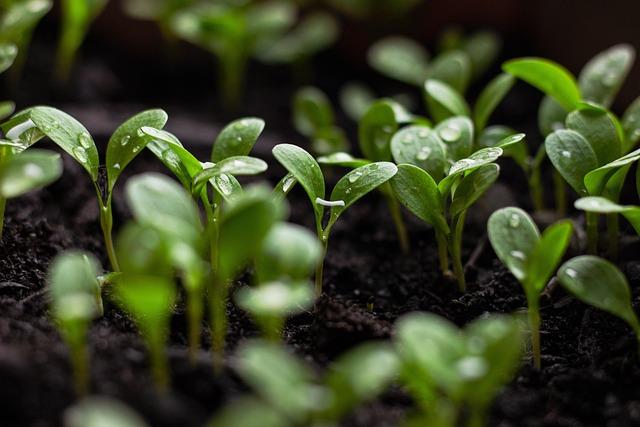
Engaging Local Communities in Water Purification Education and Awareness Programs
Recently, the African Lion 2024 military exercise in Tunisia highlighted the crucial role of water purification in enhancing public health and safety within local communities. By integrating educational and awareness programs alongside hands-on training, participants have the prospect to grasp the significance of clean water access. Community-driven initiatives focus on the following key areas:
- Understanding Water Contaminants: Participants learn about various contaminants and their effects on health.
- Practical Purification Methods: Workshops demonstrate simple yet effective purification techniques, such as filtration and boiling.
- sustainability Practices: Emphasizing the importance of maintaining purification systems to ensure ongoing access to clean water.
By fostering partnerships with local organizations, these programs not only boost water safety awareness but also empower inhabitants to implement changes in their communities.Collaborative efforts include interactive sessions where community members can share experiences and solutions, and feedback mechanisms to assess the effectiveness of the training. The impact is measurable, as seen in local testimonials, indicating increased community engagement and improved health outcomes due to the adoption of better water management practices:
| community Feedback | Impact |
|---|---|
| increased Awareness | 85% of participants reported better understanding of water safety. |
| Implementation of Practices | 70% started using purification methods learned. |
| Health Improvements | marked decrease in waterborne illnesses reported. |

Wrapping Up
the focus on water purification technologies showcased at African Lion 2024 marks a pivotal moment for Tunisia and its regional partners. As pressing water scarcity issues continue to challenge the nation, innovations in water treatment promise not only to enhance access to clean drinking water but also to bolster public health and improve agricultural productivity. The strategic implementation of these technologies, in collaboration with military and civilian entities, underscores a commitment to sustainable development in the region. As the outcomes of this collaboration unfold, thay may well serve as a model for other nations facing similar challenges, positioning Tunisia at the forefront of water management solutions in Africa. With the potential for lasting impact,the advancements demonstrated in this exercise could truly prove to be a ‘game changer’ in the quest for a more resilient and resource-secure future.







